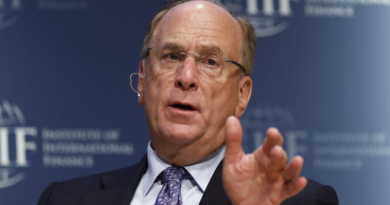A 2019 email from Microsoft's CTO to CEO Satya Nadella and Bill Gates shows how spooked the company was by its AI rivals Google and OpenAI
In 2019, Microsoft executives at the highest level had an anxious email exchange about AI that would ultimately kick-start its AI investment.
Back then, chief technology officer Kevin Scott sent a four-page email to CEO Satya Nadella and cofounder Bill Gates with the subject line “thoughts on OpenAI,” which outlined his fears that Microsoft was falling drastically behind in the AI race. At the time, ChatGPT was still more than four years away from being released to the public. But even then, Scott realized OpenAI and Google had made extraordinary steps forward in their work on AI.
“The thing that’s interesting about what OpenAI and DeepMind and Google Brain are doing is the scale of their ambition,” Scott wrote.
The email, which is heavily redacted, came to light as part of the Justice Department’s antitrust investigation into Google and was first reported by Business Insider.
That same year, Microsoft would invest $1 billion in OpenAI, the very company Scott cited in his email. Eventually the tech giant would go on to invest at least another $10 billion into the startup, which is credited for popularizing AI chatbots for everyday use with the launch of ChatGPT. The two companies are now intertwined. Microsoft brings its vast resources, the need for which Scott outlines in his email, while OpenAI brings its cutting-edge AI expertise that had so preoccupied the Microsoft executive.
In his email, Scott says he miscalculated what exactly Google and OpenAI were trying to accomplish with their AI work. At the time, DeepMind, a startup owned by Google, was trying to build an AI system that could play the Chinese board game Go, which Scott seems to be referencing.
“I was highly dismissive of that,” Scott wrote. “That was a mistake.”
Scott marveled at how Google and OpenAI had built an entire infrastructure around their AI push. In the email, he said he was surprised Google and OpenAI had designed data centers, sourced silicon chips, and built programming frameworks to enable all their work, according to the email.
“When they took all of the infrastructure that they had built to build NLP [natural language processing] models that we couldn’t easily replicate, I started to take things more seriously,” Scott told Gates and Nadella.
Microsoft did not respond to a request for comment.
The advent of AI has put many of those resources in extremely high demand. AI requires extraordinary amounts of computing power to both run and train the models behind chatbots like Google’s Gemini and OpenAI’s ChatGPT. Data centers have become hot properties both as tech investments and as real-estate assets, with some of the biggest investment firms racing to corner the market. Silicon chips, or semiconductors, went through an unprecedented shortage as more and more companies tried to hoard them, fearing they’d run out. Their importance is best exemplified by Nvidia’s legendary stock surge over the past year. AI models also necessitated vast amounts of cloud computing, which companies like Google and Microsoft invested heavily in over the past decade.
But back in 2019, when he sent the email, Scott realized how important all these infrastructure upgrades were to developing the sort of AI that’s now commonplace. “As I dug in to try to understand where all of the capability gaps were between Google and us for model training, I got very, very worried,” Scott said.
Scott says at the time that it took Microsoft about six months to train one of its AI models because “our infrastructure wasn’t up to the task.”
Microsoft also realized it was lagging its competitors in terms of the personnel it had dedicated toward machine learning and AI research. Since then, employees well-versed in AI have found no shortage of job offers (some with million-dollar pay packages) from companies eager to hire them. The rush to hire AI talent would eventually spread beyond the tech sector to virtually every industry in the corporate world.
Microsoft, according to Scott, had some “very smart” machine-learning experts, but they lacked the right resources and headcounts to make a notable dent in deep learning, the complex training mechanism used to develop AI models. That meant their work took longer than it should have, a worrying prospect amid the imminent AI arms race. “We are multiple years behind the competition in terms of [machine learning] scale,” Scott said.
Meanwhile, Nadella seemed to take Scott’s extensive concerns to heart. Nadella cc’ed chief financial officer Amy Hood and replied: This is “why I want us to do this.”




